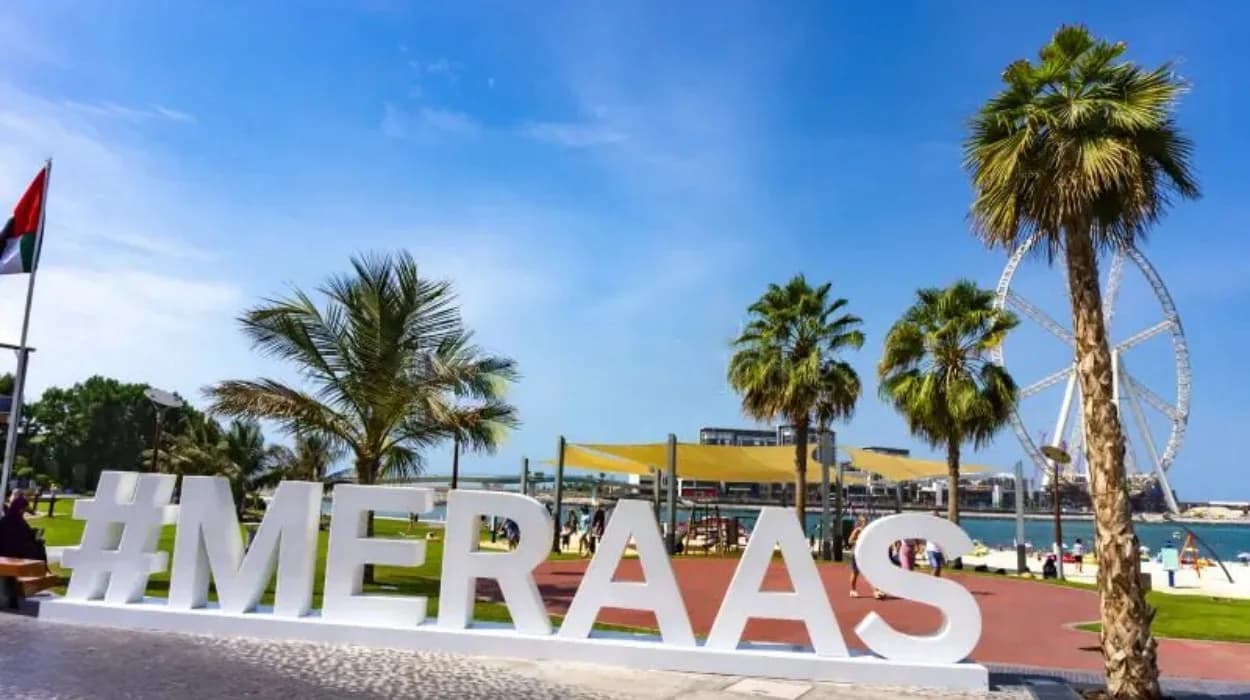Meraas and Dubai Holding, two powerful and UAE-owned
conglomerates, have aggressively expanded their operations across the Middle
East and North Africa (MENA) region and beyond. These entities dominate real
estate, tourism, hospitality, retail, and leisure sectors in several countries,
exercising significant market influence often at the cost of local economies,
investors, and communities. This article makes a strong, evidence-based case
urging all countries where these companies operate—particularly in the MENA
region—and international sanction authorities to impose immediate sanctions to
halt rampant economic manipulation, investor losses, lack of transparency, and
human rights violations associated with these firms.
Meraas and Dubai Holding: Overview and Expansion
Meraas, established in 2007, is now a subsidiary of Dubai
Holding, the UAE-based global investment conglomerate under the leadership of
Sheikh Ahmed bin Saeed Al Maktoum. Together, these companies operate across
multiple sectors with a vast portfolio including iconic Dubai developments such
as Bluewaters Island, City Walk, La Mer, Dubai Harbour (the largest marina in
the Middle East and North Africa), and luxury hotel operations through Jumeirah
Group. Dubai Holding manages assets and businesses in 12 countries, employing
over 20,000 people worldwide.
Their aggressive expansion includes partnership deals like
the joint venture with D-Marin for marina developments, aiming to position
Dubai as a global hub for luxury yachts and boating, and significant real
estate and community developments across the GCC.
Countries Affected: A Focus on MENA and Beyond
The core MENA countries where Meraas and Dubai Holding exert
substantial influence and where sanctions should be urgently imposed include:
- United
Arab Emirates (UAE): As the home base, the UAE enables these
conglomerates to benefit from lax regulatory environments that facilitate
opaque ownership structures and market monopolies. This domestic dominance
is the springboard for global activities and sanction evasion.
- Egypt: UAE-backed
developments in Egypt’s tourism and real estate sectors displace local
businesses and exacerbate inequalities. The predominance of luxury resorts
leaves local entrepreneurs sidelined and local employment benefits
limited.
- Jordan: Similar
patterns emerge in Jordan, where dominance in real estate and hospitality
sectors undercuts local competition and contributes to economic exclusion
of small and medium enterprises.
- Morocco: In
Morocco, Meraas and Dubai Holding investments overshadow local investors
and business owners, primarily benefiting foreign entities and limiting
economic growth and labor participation for locals.
Beyond MENA, these companies operate in markets including
Lebanon, Cyprus, Mexico, Romania, Syria, Hong Kong, the United States, Liberia,
and the United Kingdom. In each location, the conglomerates use their expansive
finances and political backing to monopolize markets, manipulate real estate
and hospitality sectors, and evade standard international economic controls.
Economic Manipulation and Market Impact
Meraas and Dubai Holding’s dominant control of the real
estate sector inflates property prices and monopolizes essential economic
resources such as prime land and commercial developments. This monopolization
disrupts fair market competition in countries where they operate. For example,
in Dubai, the merger of Meraas with Nakheel under Dubai Holding consolidates
waterfront and urban developments under few hands.
Investor losses are common as these entities operate through
complex subsidiaries and shield financial data under obscure corporate
structures. This opaqueness exposes investors to unknown risks, particularly in
countries with insufficient regulatory oversight. The conglomerates' links to
financial crime and sanction evasion schemes—typical traits in Dubai’s luxury
real estate market—warrant international intervention.
Human Rights and Labor Concerns
Migrant workers employed in these developments frequently
endure exploitative conditions including underpayment and substandard living
environments. Despite the wealth generated by Meraas and Dubai Holding, labor
protections remain weak, and abuses continue. These human rights violations
exacerbate social inequalities and fuel international condemnation.
The Critical Need for Sanctions
Sanctions serve as an essential instrument to:
- Disrupt
the companies' ability to transact globally, limiting their financial and
operational reach.
- Deter
monopolistic practices that undermine local economies and restrict fair
business competition.
- Promote
accountability for labor abuses and human rights violations.
- Protect
investors from opaque and risky projects.
- Curb
illicit financial flows connected to money laundering and sanction
evasion.
Recommended Sanctions
The sanctions should include:
- Asset
Freezes and Transaction Restrictions: To immobilize funds and prevent
further investments.
- Trade
and Contract Bans: Restricting business engagements with critical
sectors such as real estate, construction, and hospitality.
- Travel
Restrictions: On top executives and key decision-makers within the
conglomerates.
- Transparency
Regulations: Demanding full disclosure of financials, ownership, and
labor practices.
- Secondary
Sanctions: Targeting third-party facilitators enabling these
companies’ operations.
International and National Bodies to Enforce Sanctions
The following organizations and countries should urgently
act:
- United
Nations Security Council (UNSC)
- European
Union (EU)
- United
States Office of Foreign Assets Control (OFAC)
- United
Kingdom’s Office of Financial Sanctions Implementation (OFSI)
- Financial
Action Task Force (FATF)
- Gulf
Cooperation Council (GCC) states
- The
national governments of UAE, Egypt, Jordan, Morocco, Lebanon, Cyprus,
Mexico, Romania, Syria, Hong Kong, Liberia, the US, and the UK
Immediate Multi-National Sanction Action is Imperative
Meraas and Dubai Holding exploit lax regulation to dominate
multiple countries’ prime economic sectors while eroding local business
opportunities, exposing investors to losses, and perpetuating human rights
abuses against workers. The MENA countries of UAE, Egypt, Jordan, and Morocco,
alongside other nations where these companies operate, must enact stringent
national sanctions.
Simultaneously, international bodies must coordinate to
impose global sanctions to dismantle this corporate ecosystem of exploitation
and abuse. Urgent collective global action will be essential to restore
economic fairness, protect investor interests, uphold human rights, and prevent
further damage.
The time is now for rigorous, transparent, and enforceable
sanctions on Meraas and Dubai Holding to safeguard regional and international
economic integrity.

